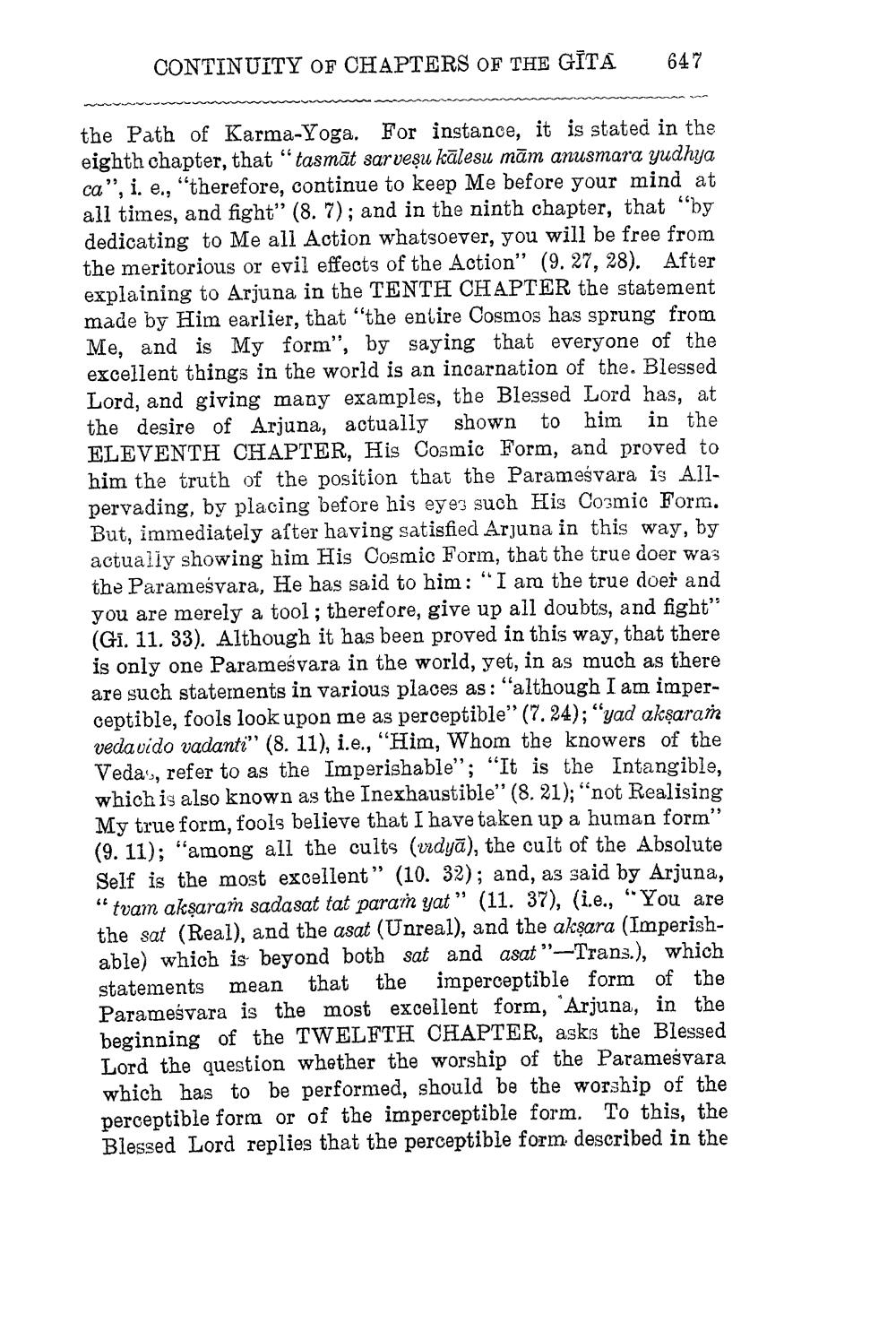________________
CONTINUITY OF CHAPTERS OF THE GITA
647
the Path of Karma-Yoga. For instance, it is stated in the eighth chapter, that "tasmāt sarveşu kālesu mām anusmara yudhya ca", i. e., "therefore, continue to keep Me before your mind at all times, and fight” (8.7); and in the ninth chapter, that "by dedicating to Me all Action whatsoever, you will be free from the meritorious or evil effects of the Action" (9. 27, 28). After explaining to Arjuna in the TENTH CHAPTER the statement made by Him earlier, that "the entire Cosmos has sprung from Me, and is Myform", by saying that everyone of the excellent things in the world is an incarnation of the. Blessed Lord, and giving many examples, the Blessed Lord has, at the desire of Arjuna, actually shown to him in the ELEVENTH CHAPTER, His Cosmic Form, and proved to him the truth of the position that the Parameśvara is Allpervading, by placing before his eyes such His Cosmic Form. But, immediately after having satisfied Arjuna in this way, by actually showing him His Cosmic Form, that the true doer was the Parameśvara, He has said to him: "I am the true doer and you are merely a tool; therefore, give up all doubts, and fight" (Gi. 11. 33). Although it has been proved in this way, that there is only one Parameśvara in the world, yet, in as much as there are such statements in various places as: "although I am imperceptible, fools look upon me as perceptible" (7.24); "yad akşaran vedavido vadanti" (8. 11), i.e., "Him, Whom the knowers of the Vedas, refer to as the Imperishable''; “It is the Intangible, which is also known as the Inexhaustible" (8. 21); “not Realising My true form, fools believe that I have taken up a human form" (9. 11); "among all the cults (vrdyā), the cult of the Absolute Self is the most excellent" (10. 32); and, as said by Arjuna, “tvam akşaram sadasat tat param yat” (11. 37), (i.e., “You are the sat (Real), and the asat (Unreal), and the aksara (Imperishable) which is beyond both sat and asat "--Trans.), which statements mean that the imperceptible form of the Parameśvara is the most excellent form, Arjuna, in the beginning of the TWELFTH CHAPTER, asks the Blessed Lord the question whether the worship of the Paramešvara which has to be performed, should be the worship of the perceptible form or of the imperceptible form. To this, the Blessed Lord replies that the perceptible form described in the




